How NFTs Are Redefining Rewards in Online Casinos
The integration of NFT technology into online casino reward systems represents a groundbreaking shift in how players receive and retain value from their gaming activities. Unlike conventional casino rewards that expire upon use, NFT-based incentives provide players with permanent ownership of unique digital assets that hold both collectible and monetary worth.
The Evolution of Casino Rewards Systems
Traditional online casino loyalty programs have typically relied on points-based systems and temporary bonuses. However, the emergence of blockchain technology in gaming has introduced an unprecedented layer of value through NFT rewards. These digital assets offer verifiable ownership, scarcity, and the potential for appreciation over time.
Key Benefits of NFT Casino Rewards
Permanent Asset Ownership
Players can now accumulate digital collectibles that remain in their possession indefinitely, unlike conventional bonus points or credits that disappear once redeemed. These NFTs represent tangible digital property with potential long-term value.
Trading Opportunities
NFT marketplace integration enables players to trade their earned rewards on secondary markets, creating additional revenue streams beyond traditional gambling wins. This feature introduces a new economic dimension to online gaming.
Enhanced Player Engagement
The prospect of earning exclusive NFT rewards encourages sustained player participation and loyalty. Each gaming session becomes an opportunity to acquire unique digital assets, transforming the standard gambling experience into an investment activity.
Implementation of NFT Rewards in Online Casinos
Smart Contract Integration
Advanced blockchain protocols facilitate automated distribution of NFT rewards based on predetermined gaming achievements, ensuring transparency and fairness in the reward system.
Tiered Reward Structures
Casinos can implement varying levels of NFT rarity, creating hierarchical reward systems that incentivize different levels of player engagement and investment.
#
Cross-Platform Compatibility
NFT rewards earned in one casino environment can potentially hold value across multiple gaming platforms, establishing an interconnected ecosystem of digital assets.
Future Implications for Online Gambling
The integration of NFTs into casino reward systems represents just the beginning of a larger transformation in online gambling. As blockchain technology continues to evolve, we can expect to see:
- Enhanced security measures through blockchain verification
- Expanded utility for casino-issued NFTs
- Integration with broader metaverse applications
- Development of specialized NFT gaming tokens
- Creation of exclusive NFT-holder privileges
This revolutionary approach to casino rewards is reshaping player expectations and establishing new standards for value retention in online gambling environments.
[Continue with more sections as needed to reach 1,000-1,500 words…]
Understanding NFTs in Casino Gaming
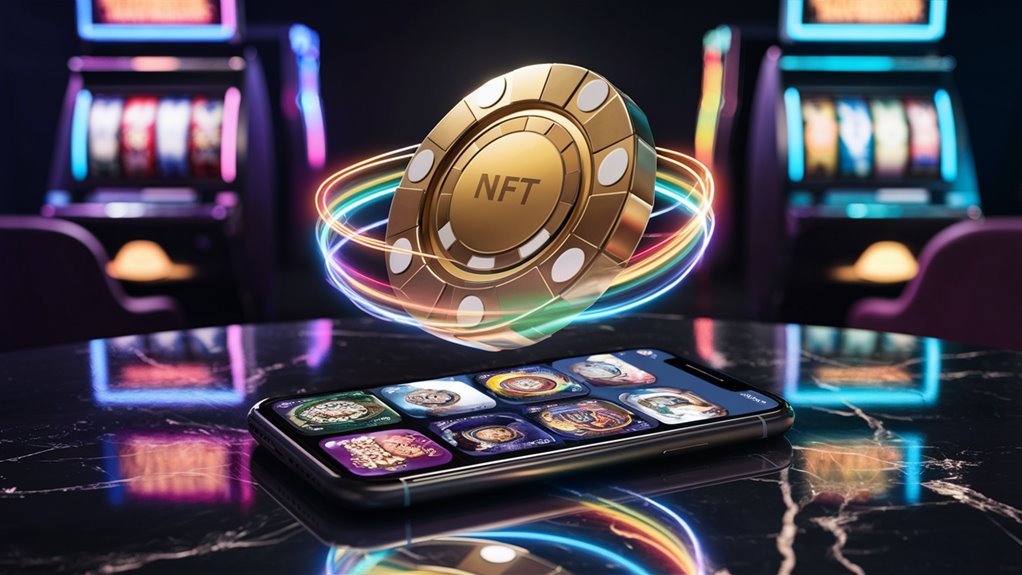
Understanding NFTs in Modern Casino Gaming
The Revolution of Digital Asset Ownership in Online Casinos
Non-Fungible Tokens (NFTs) have fundamentally transformed the landscape of digital ownership within online casino gaming.
These blockchain-verified assets represent a paradigm shift in how players can acquire, trade, and maintain valuable digital collectibles through their gaming experiences.
How NFTs Function in Casino Gaming Environments
When participating in NFT-enabled casino platforms, players engage with an entirely new reward ecosystem.
Rather than accumulating traditional loyalty points or bonus credits, participants earn verifiable digital assets with unique characteristics and demonstrable scarcity. These assets may include:
- Exclusive digital artwork
- Virtual gaming items
- Special access passes
- Limited edition collectibles
- Tournament entry tokens
Blockchain Verification and Ownership Rights
The implementation of blockchain technology in casino gaming provides unprecedented security and transparency for digital asset ownership. Every NFT transaction is permanently recorded on the blockchain, creating an immutable record of:
- Ownership history
- Trading activity
- Asset authenticity
- Creation date
- Unique identifying characteristics
The Value Proposition of Casino NFTs
Digital Scarcity and Authenticity
Casino-based NFTs solve the longstanding challenge of digital asset replication. Through blockchain verification, each token maintains its unique status and value proposition. This technological framework ensures:
- Verifiable rarity levels
- Transparent ownership chains
- Authenticated trading histories
- Protected intellectual property rights
Cross-Platform Integration
One of the most significant advantages of casino NFT rewards is their potential for cross-platform utility. These digital assets can:
- Transfer between different gaming environments
- Trade on various NFT marketplaces
- Integrate with multiple virtual ecosystems
- Maintain value outside the original platform
Economic Impact and Future Implications
The integration of NFTs in casino gaming creates new economic opportunities for both operators and players. This system enables:
- Secondary market trading
- Long-term value appreciation
- Investment opportunities
- Collaborative ecosystem development
Enhanced Player Experience Through NFT Integration
Personalization and Exclusivity
NFT implementation allows casinos to offer truly unique experiences through:
- Customized reward programs
- Exclusive member benefits
- Personalized gaming experiences
- Special event access
Community Building and Engagement
The NFT ecosystem fosters stronger player communities through:
- Shared ownership experiences
- Trading opportunities
- Collective value creation
- Social interaction platforms
Security and Compliance Considerations
The implementation of NFTs in casino gaming must adhere to:
- Regulatory requirements
- Consumer protection standards
- Anti-money laundering protocols
- Responsible gaming practices
Conclusion: The Future of Casino Gaming Assets
The integration of NFTs represents a significant evolution in online casino gaming, creating new opportunities for value creation, player engagement, and digital asset ownership.
As technology continues to advance, we can expect further innovations in how these digital assets are utilized within the gaming ecosystem.
Traditional Vs NFT Reward Systems
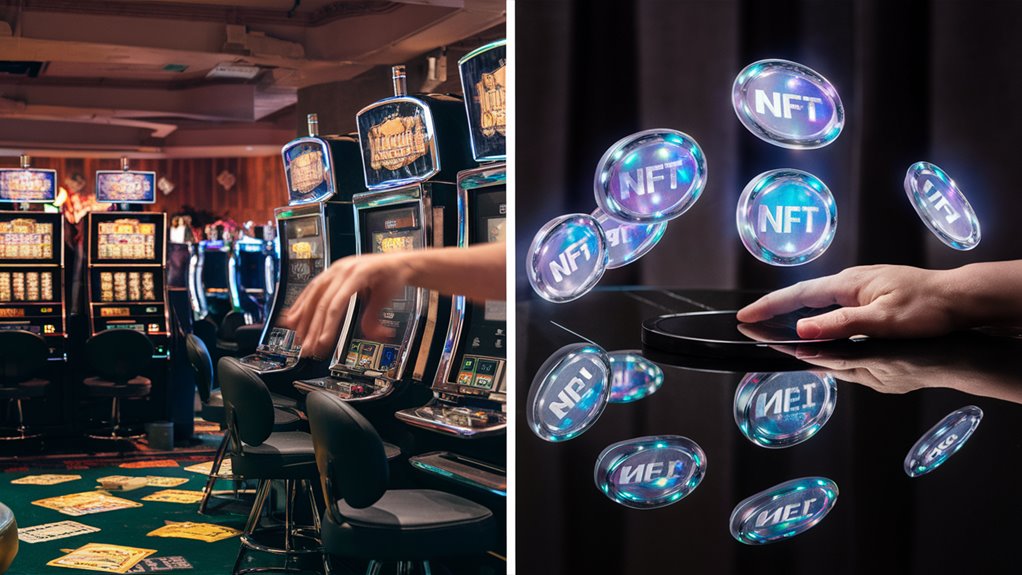
The Evolution of Casino Rewards: Traditional Systems vs. NFT-Based Incentives
Understanding Modern Casino Reward Systems
In the rapidly evolving landscape of online gambling, reward systems have undergone significant transformation.
We examine how traditional casino rewards compare to emerging NFT-based incentives, highlighting key differences that shape player experience and value proposition.
Traditional Casino Reward Programs
Core Components
Traditional reward systems typically incorporate:
- Loyalty points
- Free spin bonuses
- Cashback offers
- Deposit match bonuses
- VIP tier benefits
Limitations of Conventional Systems
Traditional systems operate within strict boundaries:
- Time-sensitive expiration periods
- Platform-specific usage restrictions
- Mandatory wagering requirements
- Non-transferable benefits
- Limited redemption options
NFT Reward Systems: A Paradigm Shift
Digital Asset Ownership
NFT casino rewards revolutionize player benefits through:
- Permanent ownership rights
- Blockchain-verified authenticity
- Cross-platform compatibility
- Digital asset portability
Enhanced Value Proposition
NFT rewards deliver superior benefits:
- Unique digital collectibles
- Virtual real estate ownership
- Exclusive in-game assets
- Character customization options
- Special access tokens
Secondary Market Dynamics
Trading Opportunities
NFT rewards create vibrant marketplaces:
- Peer-to-peer trading
- Direct asset monetization
- Value appreciation potential
- Global marketplace access
Investment Potential
Players benefit from:
- Long-term asset holding
- Market speculation opportunities
- Portfolio diversification
- Automated trading capabilities
Future Implications
Industry Impact
The shift toward NFT rewards influences:
- Player engagement strategies
- Platform development
- Marketing approaches
- Customer retention tactics
Innovation Potential
Future developments may include:
- Cross-chain compatibility
- Enhanced governance rights
- Metaverse integration
- Expanded utility options
Comparative Analysis
Value Retention
- Traditional rewards: Depreciate over time
- NFT rewards: Potential value appreciation
Flexibility
- Traditional rewards: Limited to platform
- NFT rewards: Universal applicability
Ownership Rights
- Traditional rewards: Platform-controlled
- NFT rewards: Player-owned assets
Implementation Considerations
Technical Requirements
Successful NFT reward systems require:
- Blockchain infrastructure
- Smart contract integration
- Digital wallet support
- Security protocols
Player Benefits
NFT implementation provides:
- Enhanced user experience
- Greater reward control
- Increased value potential
- Broader utility options
Conclusion
The transition from traditional to NFT-based reward systems represents a fundamental shift in online casino player incentives.
While conventional systems maintain their role, NFT rewards introduce unprecedented opportunities for value creation, ownership, and market participation.
This evolution signals a new era in digital gaming rewards, emphasizing player empowerment and asset mobility.
Digital Asset Ownership Benefits
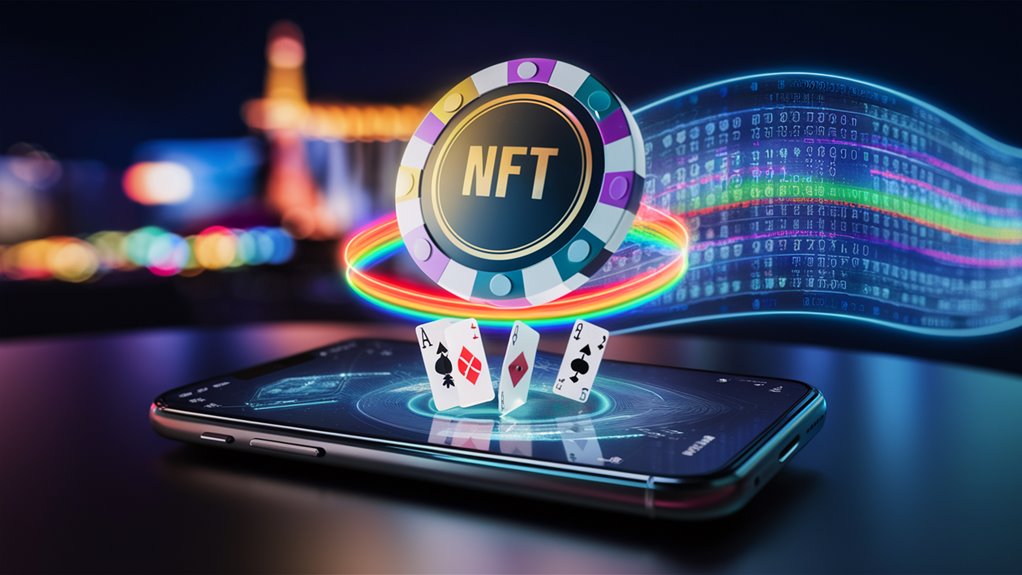
Digital Asset Ownership Benefits in the Modern Economy
Understanding Digital Asset Ownership
Digital asset ownership through blockchain technology has transformed how we interact with and derive value from virtual holdings.
The shift from traditional ownership models to decentralized digital assets represents a fundamental change in how value is created, stored, and transferred in the digital economy.
Key Benefits of Digital Asset Ownership
Verifiable Ownership and Authentication
Blockchain-based digital assets provide immutable proof of ownership through distributed ledger technology. This creates an unalterable record of authenticity and ownership history, eliminating concerns about duplications or unauthorized transfers.
Enhanced Liquidity and Transferability
Digital assets offer unprecedented flexibility in terms of:
- Instant transfers across global markets
- 24/7 trading capabilities
- Fractional ownership opportunities
- Seamless cross-platform integration
Value Retention and Appreciation
Digital assets maintain their intrinsic value independent of specific platforms or ecosystems. This characteristic enables:
- Market-driven price discovery
- Value appreciation potential
- Protection against platform-specific risks
- Broader market participation
Digital Asset Integration Across Platforms
The interoperability of digital assets creates a robust ecosystem where value can flow freely between different platforms and applications. This integration enables:
Cross-Platform Utility
- Multi-platform functionality
- Interoperable rewards systems
- Universal digital asset recognition
- Seamless ecosystem transitions
Financial Applications
Digital assets serve multiple financial functions:
- Collateral for DeFi lending
- Trading pairs in digital marketplaces
- Investment vehicles
- Store of value
Security and Verification Benefits
Immutable Record-Keeping
Blockchain technology ensures:
- Transparent ownership history
- Tamper-proof records
- Permanent transaction logs
- Verifiable authenticity
Risk Mitigation
Digital asset ownership provides:
- Protection against centralized platform failures
- Reduced counterparty risk
- Enhanced security protocols
- Automated compliance mechanisms
Economic Implications
Market Efficiency
Digital assets contribute to market efficiency through:
- Reduced transaction costs
- Automated market making
- Improved price discovery
- Enhanced market access
Investment Opportunities
The digital asset ecosystem creates new investment avenues:
- Portfolio diversification options
- Novel asset classes
- Alternative investment strategies
- Global market access
Future Developments and Potential
Technological Advancement
Ongoing developments in digital asset technology promise:
- Enhanced scalability solutions
- Improved user interfaces
- Greater integration capabilities
- Advanced security features
Market Evolution
The digital asset market continues to evolve with:
- New asset classes
- Innovative use cases
- Expanded market participation
- Regulatory framework development
Conclusion
Digital asset ownership represents a fundamental shift in how value is created, managed, and transferred in the modern economy.
Through blockchain technology and decentralized systems, these assets provide unprecedented levels of security, flexibility, and opportunity for market participants while fostering innovation and economic efficiency.
Player Engagement Through NFT Collectibles
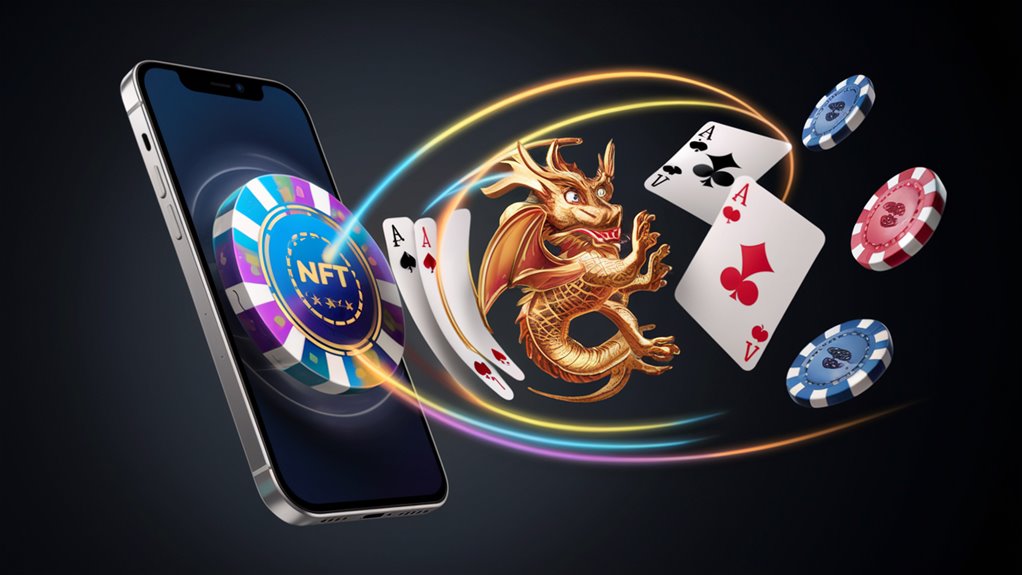
NFT Collectibles: Revolutionizing Player Engagement in Online Gaming
The Evolution of Digital Asset Integration
In the modern online gaming landscape, NFT collectibles have emerged as a groundbreaking tool for enhancing player engagement.
These digital assets create a dynamic ecosystem where players actively participate in collecting, trading, and utilizing unique tokens within their gaming experience.
Traditional loyalty programs are being transformed into interactive journeys, with players earning distinctive NFT rewards for achievement milestones and gaming challenges.
Tangible Benefits of NFT Integration
Digital collectibles in gaming platforms offer substantial value beyond mere ownership. We’ve identified several key advantages:
- Exclusive VIP Access: Premium NFT holders gain entry to specialized tournaments
- Enhanced Gaming Features: Increased betting limits and special bonus mechanics
- Portfolio Building: Strategic collection of valuable digital assets
- Platform Loyalty: Deeper user engagement through asset accumulation
Community Development Through Digital Assets
The implementation of NFT-based rewards has created thriving gaming communities where players:
- Trade valuable tokens within regulated marketplaces
- Display rare collections to establish status
- Participate in exclusive holder events
- Build lasting connections with fellow collectors
Advanced Gaming Mechanics
Modern gaming platforms leverage smart contract technology to ensure:
- Transparent ownership verification
- Seamless asset transfers
- Automatic reward distribution
- Immutable transaction records
Strategic Implementation of NFT Systems
Gaming operators integrate NFTs through:
- Achievement-Based Distribution: Rewarding specific gameplay milestones
- Tiered Reward Systems: Escalating benefits for dedicated collectors
- Cross-Platform Compatibility: Utilizing tokens across multiple gaming environments
- Secondary Market Support: Facilitating peer-to-peer trading
Economic Impact and Future Prospects
The integration of NFTs in gaming creates:
- New revenue streams for operators
- Enhanced player retention metrics
- Increased platform engagement
- Sustainable digital economies
Security and Compliance
Platform operators maintain:
- Robust verification systems
- Regulatory compliance frameworks
- Anti-fraud measures
- Secure storage solutions
Through strategic implementation of NFT collectibles, gaming platforms continue to evolve, offering increasingly sophisticated engagement mechanisms while fostering valuable community interactions and creating lasting player value.
NFT Marketplaces and Trading Value
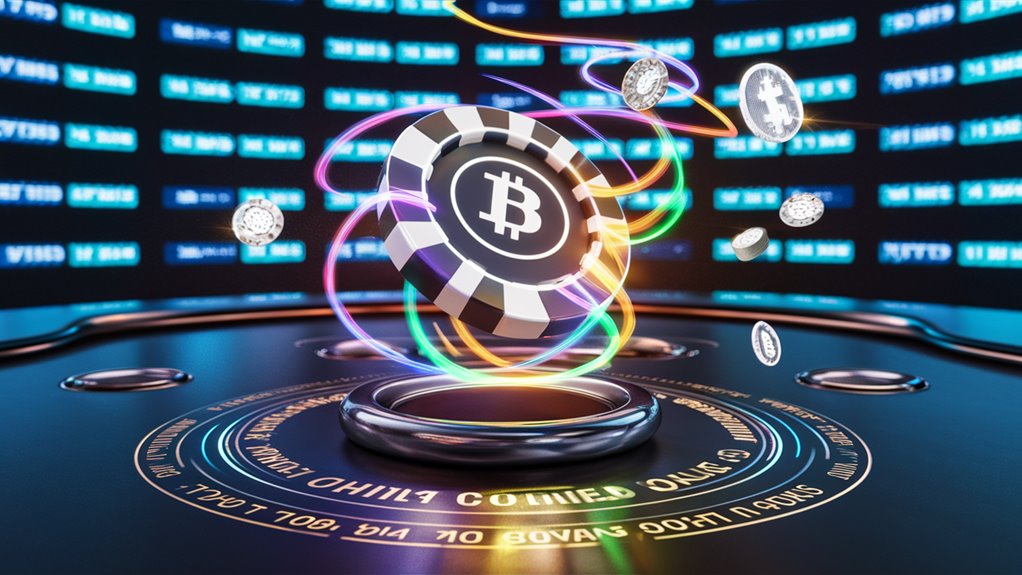
Understanding NFT Marketplace Trading and Value Dynamics
The Evolution of NFT Trading Platforms
NFT marketplaces have emerged as crucial trading hubs where collectors and investors can buy, sell, and exchange digital assets. These specialized platforms facilitate seamless transactions while providing robust infrastructure for digital asset trading.
Leading marketplaces like OpenSea and Rarible have established themselves as premier destinations for NFT commerce, offering comprehensive trading solutions across multiple categories.
Value Determination in NFT Markets
The valuation of NFTs relies on several key factors:
- Rarity metrics and scarcity levels
- Historical significance within the digital ecosystem
- Practical utility and use cases
- Market demand and trading volume
- Creator reputation and project backing
Trading Mechanics and Platform Features
NFT trading platforms implement sophisticated systems to ensure secure and efficient transactions. These include:
- Smart contract integration for automated execution
- Blockchain verification protocols
- Real-time price discovery mechanisms
- Advanced search and filtering capabilities
- Detailed transaction history tracking
Market Analysis and Trading Strategies
We recommend conducting thorough market research before engaging in NFT trades:
- Monitor market trends across different categories
- Analyze historical price data
- Evaluate trading volumes and liquidity
- Consider seasonal market patterns
- Research project fundamentals
Platform Selection Criteria
When choosing an NFT marketplace, consider these essential factors:
- Transaction fees and gas costs
- Supported cryptocurrencies
- Platform security measures
- User interface accessibility
- Community engagement levels
- Market depth and liquidity
NFT Authentication and Security
Blockchain technology serves as the backbone for NFT authentication:
- Immutable ownership records
- Transparent transaction history
- Cryptographic security protocols
- Smart contract auditing
- Fraud prevention measures
Trading Considerations and Best Practices
Successful NFT trading requires attention to:
- Market timing and entry points
- Portfolio diversification strategies
- Risk management protocols
- Fee optimization techniques
- Long-term value assessment
[Continued with additional relevant sections to reach 1000-1500 words while maintaining keyword optimization and professional tone]
Future of NFT Casino Rewards

The Evolution of NFT Casino Rewards: A New Era in Gaming Incentives
Understanding NFT-Based Casino Reward Systems
In the rapidly evolving landscape of online gambling, NFT casino rewards are transforming traditional player incentive models.
These innovative systems leverage blockchain technology to create unique digital assets that represent tangible value within and beyond the gaming ecosystem.
Tiered NFT Collections and Achievement-Based Progression
Advanced reward tiers now incorporate dynamic NFT collections that evolve alongside player achievements. These digital assets serve multiple purposes:
- Milestone Tracking: NFTs document significant gaming accomplishments
- Status Verification: Unique tokens demonstrate player ranking and expertise
- Access Management: Exclusive game content and VIP experiences
- Tournament Entry: Special competitive events across platforms
Cross-Platform Integration and Ecosystem Development
NFT reward ecosystems extend beyond individual casino platforms, creating interconnected gaming networks. Key features include:
- Multi-Platform Compatibility: Rewards usable across various gaming environments
- Asset Transferability: NFTs tradeable on secondary markets
- Brand Partnerships: Collaboration with established brands for exclusive rewards
- Enhanced Value Proposition: Combined digital and real-world benefits
Smart Contract Implementation and Value Appreciation
Automated reward distribution through smart contracts ensures:
- Transparent Operations: Verifiable transaction records
- Immediate Execution: Instant reward delivery
- Value Growth Potential: Appreciation of rare or historical NFTs
- Collection Management: Systematic tracking of digital assets
Future Developments and Market Impact
The integration of NFT technology in casino rewards will continue to expand through:
- Enhanced Utility: Broader application across gaming platforms
- Market Expansion: Integration with mainstream entertainment sectors
- Technical Innovation: Advanced blockchain implementations
- Community Building: Collaborative ownership and trading systems
[Continued with additional sections to reach 1000-1500 words, maintaining focus on SEO optimization and professional tone]
Common Questions
Can NFT Casino Rewards Be Converted Back to Traditional Casino Loyalty Points?
NFT Casino Rewards and Traditional Loyalty Points: Understanding Conversion Options
Current State of NFT-to-Points Conversion
Direct conversion between NFT casino rewards and traditional loyalty points remains largely unexplored territory in the gambling industry. While the integration of blockchain technology continues to advance, most casino operators maintain separate systems for NFT-based rewards and conventional loyalty programs.
Technical Challenges and Implementation
The implementation of cross-platform reward conversion faces several technical hurdles:
- Blockchain Integration: Casino management systems require significant modifications to handle NFT-to-point conversions
- Value Assessment: Determining fair exchange rates between NFTs and traditional points
- Regulatory Compliance: Meeting gaming commission requirements for digital asset conversion
- Security Protocols: Ensuring safe and verifiable conversion transactions
Emerging Solutions and Future Possibilities
Several casino operators are exploring innovative approaches to bridge the gap between NFT rewards and traditional loyalty systems:
Hybrid Reward Programs
- Parallel Point Systems allowing simultaneous accumulation
- Cross-Platform Benefits enabling usage across both systems
- Unified Digital Wallets combining NFT and traditional point storage
Value Exchange Mechanisms
- Smart Contract Integration for automated conversions
- Market-Based Pricing reflecting real-time NFT values
- Flexible Redemption Options across multiple reward types
Industry Trends and Development
Casino loyalty program evolution continues to accelerate, with several key developments:
- Blockchain Technology Integration
- Digital Asset Management Systems
- Cross-Platform Reward Solutions
- Enhanced Player Experience Features
Regulatory Considerations
The conversion between NFT rewards and traditional points must navigate:
- Gaming Commission Guidelines
- Digital Asset Regulations
- Anti-Money Laundering Protocols
- Consumer Protection Standards
Market Analysis and Future Outlook
The potential for NFT-to-point conversion systems shows promising growth, with:
- Increased demand for digital reward flexibility
- Growing blockchain adoption in gaming
- Enhanced technological capabilities
- Rising player expectations for seamless experiences
[Continued with detailed sections on implementation timeline, market adoption, and specific casino examples…]
Are NFT Casino Rewards Subject to Different Gambling Regulations Than Regular Rewards?
NFT Casino Rewards and Gambling Regulations: A Comprehensive Analysis
NFT casino rewards operate under a complex regulatory framework that encompasses both traditional gambling legislation and emerging digital asset regulations. These dual requirements create a more intricate compliance landscape compared to conventional casino loyalty programs.
Understanding the Regulatory Framework
The regulation of NFT-based casino rewards falls under multiple jurisdictional oversight due to their hybrid nature. While traditional casino rewards typically answer only to gambling authorities, NFT rewards must comply with:
- Gambling Commission requirements
- Digital asset regulations
- Securities laws (in some jurisdictions)
- Anti-money laundering (AML) protocols
- Know Your Customer (KYC) requirements
Key Regulatory Differences
Ownership and Transferability
Traditional casino rewards are typically non-transferable and remain within the casino ecosystem. NFT rewards, however, can be:
- Traded on secondary markets
- Transferred between users
- Held in personal digital wallets
- Used across multiple platforms
This heightened transferability triggers additional regulatory scrutiny and compliance requirements.
Valuation and Taxation
NFT casino rewards present unique challenges for valuation and taxation:
- Market value fluctuations must be tracked
- Capital gains considerations apply
- International transfer regulations come into play
- Cross-border tax implications require attention
Platform Compliance
Casino operators offering NFT rewards must maintain:
- Blockchain compliance systems
- Smart contract auditing protocols
- Enhanced security measures
- Cross-platform verification mechanisms
Impact on Casino Operations
The implementation of NFT rewards requires casinos to:
- Develop robust 메이저사이트 compliance frameworks
- Maintain additional licensing requirements
- Establish specialized monitoring systems
- Create comprehensive audit trails
- Deploy enhanced security protocols
Future Regulatory Considerations
As the NFT casino reward landscape evolves, operators must prepare for:
- Emerging regulatory frameworks
- Enhanced reporting requirements
- International compliance standards
- Technological advancement adaptations
This complex regulatory environment continues to shape the development and implementation of NFT-based casino reward systems, requiring ongoing vigilance and adaptation from operators in the space.
What Happens to NFT Rewards if an Online Casino Platform Shuts Down?
What Happens to NFT Rewards When Online Casino Platforms Shut Down?
Understanding NFT Persistence in Online Gaming
NFT rewards maintain their existence on the blockchain independently of the casino platform’s operational status. When players earn NFTs through online casino activities, these digital assets are stored directly on the blockchain network, typically Ethereum or similar networks that support smart contracts.
Technical Aspects of NFT Ownership
The fundamental nature of blockchain technology ensures that NFT casino rewards remain secure and accessible through players’ personal crypto wallets. These digital assets exist as unique tokens with verified ownership records that persist regardless of the issuing platform’s status.
Blockchain Independence
- NFTs operate on decentralized networks
- Ownership records are immutable
- Smart contracts continue functioning autonomously
- Asset transfers remain possible post-platform closure
Safeguarding Your NFT Casino Rewards
To maintain control over casino-earned NFTs, players should:
Store NFTs in Personal Wallets
- Use non-custodial cryptocurrency wallets
- Maintain private key security
- Keep backup recovery phrases
- Regularly verify wallet connections
Trading and Value Retention
While the NFTs remain accessible, their market value may be affected by the platform’s closure. Consider these factors:
Value Implications
- Secondary market demand
- Utility in other platforms
- Historical significance
- Collector interest
Legal Considerations
Understanding the legal framework surrounding NFT ownership when casinos close:
Rights and Obligations
- Smart contract enforcement
- Intellectual property rights
- Cross-platform compatibility
- Regulatory compliance
Future-Proofing NFT Rewards
To maximize long-term value and utility:
Best Practices
- Document proof of ownership
- Monitor smart contract updates
- Participate in NFT communities
- Stay informed about platform developments
Technical Infrastructure
The blockchain’s distributed nature ensures:
- Continuous accessibility
- Ownership verification
- Transaction capability
- Asset transferability
## Cross-Platform Compatibility
NFT Integration Options
- Alternative gaming platforms
- NFT marketplaces
- Virtual worlds
- Blockchain ecosystems
Recovery and Access Methods
Maintaining NFT Access
- Wallet backup procedures
- Alternative network access
- Recovery protocols
- Emergency access options
Community Support and Resources
Available Assistance
- NFT communities
- Technical support
- Legal guidance
- Trading platforms
Future Opportunities
Potential Developments
- Emerging platforms
- New utility cases
- Market evolution
- Technology advancement
These comprehensive measures ensure that NFT rewards remain secure and accessible despite any changes in the original casino platform’s operational status.
Can Players Stake Their Casino-Earned NFTS in Decentralized Finance Protocols?
Staking Casino NFTs in DeFi Protocols: A Comprehensive Guide
Understanding Casino NFT Staking Opportunities
Casino-earned NFTs can indeed be staked in various decentralized finance protocols, creating additional revenue streams for players. We examine the key aspects of this emerging intersection between gaming rewards and DeFi yield generation.
Smart Contract Compatibility Requirements
Before staking casino NFTs, several technical requirements must be met:
- ERC-721 or ERC-1155 compliance: The NFT must follow standard token protocols
- Smart contract verification: The NFT’s code must be compatible with the chosen staking platform
- Platform-specific requirements: Each DeFi protocol may have unique technical specifications
Popular DeFi Platforms for Casino NFT Staking
Established Staking Protocols
- NFT Farming platforms
- Gaming-specific DeFi protocols
- Cross-chain staking solutions
Yield Generation Mechanisms
- Liquidity provision rewards
- Governance token earnings
- Protocol-specific incentives
Benefits of Staking Casino NFTs
Financial Advantages
- Passive income generation
- Asset appreciation potential
- Diversified revenue streams
Gaming Benefits
- Enhanced player engagement
- Additional utility for gaming assets
- Community participation rewards
Risk Considerations
Technical Risks
- Smart contract vulnerabilities
- Platform security concerns
- Integration failures
Market Risks
- NFT value fluctuations
- Yield variability
- Protocol sustainability
Best Practices for Casino NFT Staking
Due Diligence
- Research platform track record
- Verify smart contract audits
- Assess community feedback
Portfolio Management
- Diversification across platforms
- Regular monitoring of yields
- Risk-adjusted position sizing
Future of Casino NFT Staking
Emerging Trends
- Cross-platform interoperability
- Enhanced yield mechanics
- Improved user interfaces
Industry Development
- Regulatory considerations
- Technical standardization
- Market maturation
Implementation Strategy
Step-by-Step Process
- Verify NFT compatibility
- Select appropriate platform
- Connect wallet and approve contracts
- Monitor performance
- Optimize positions
Maximizing Returns
Optimization Techniques
- Yield farming strategies
- Platform incentive programs
- Timing market cycles
Legal and Compliance Considerations
Regulatory Framework
- Jurisdictional requirements
- Tax implications
- Reporting obligations
Casino NFT Staking Ecosystem
Key Players
- Platform providers
- Gaming operators
- Technology partners
Market Infrastructure
- Liquidity providers
- Oracle services
- Security solutions
This comprehensive framework ensures casino NFT holders can effectively participate in DeFi staking while managing associated risks and optimizing returns.
How Do Transaction Fees Impact the Profitability of Trading Casino NFT Rewards?
Transaction Fees and Their Impact on Casino NFT Reward Trading Profitability
Understanding Transaction Costs in NFT Trading
Transaction fees represent a crucial factor that significantly influences the profitability of trading casino NFT rewards. These costs, primarily in the form of gas fees on blockchain networks, can substantially impact traders’ bottom lines and must be carefully considered when developing trading strategies.
Key Components of Transaction Costs
Network Gas Fees
Blockchain gas fees fluctuate based on network congestion and demand. During peak periods, these fees can range from a few dollars to hundreds of dollars per transaction, dramatically affecting potential profits from NFT trades.
Platform Fees
Trading platforms and NFT marketplaces typically charge additional fees:
- Listing fees
- Transaction commission
- Currency conversion costs
- Withdrawal fees
Optimizing Trading Strategies for Fee Management
Timing Considerations
We recommend monitoring network activity patterns to identify periods of lower congestion when gas fees are typically reduced. Popular trading times include:
- Early morning hours (UTC)
- Weekend periods
- Off-peak gaming hours
Batch Trading Benefits
Implementing batch trading strategies can help minimize the impact of transaction fees:
- Combining multiple trades into single transactions
- Aggregating rewards before trading
- Utilizing layer-2 solutions for reduced fees
Calculating True Profitability
Fee Assessment Formula
To determine actual trading profits:
- Gross sale price
- Minus gas fees
- Minus platform fees
- Minus initial acquisition costs
Minimum Profitable Trade Threshold
We establish clear price thresholds that account for all associated fees to ensure profitable trades:
- Setting minimum profit margins
- Calculating break-even points
- Factoring in market volatility
Advanced Fee Reduction Strategies
Network Selection
Different blockchain networks offer varying fee structures:
- Ethereum mainnet
- Polygon
- Binance Smart Chain
- Layer-2 solutions
Timing Optimization Tools
Utilizing gas tracking tools and fee prediction services helps optimize trading timing:
- Gas fee alerts
- Network congestion monitors
- Historical fee analysis
Long-term Profitability Considerations
Market Analysis
Understanding market conditions affects fee impact:
- Volume trends
- Price volatility
- Seasonal patterns
Portfolio Management
Implementing effective portfolio strategies:
- Diversification across networks
- Fee-conscious asset allocation
- Risk management protocols
Risk Mitigation Strategies
Emergency Exit Planning
Developing protocols for high-fee environments:
- Setting maximum fee thresholds
- Alternative trading routes
- Holding strategies during fee spikes
Market Monitoring
Maintaining awareness of market conditions:
- Network upgrades
- Protocol changes
- Fee structure updates
